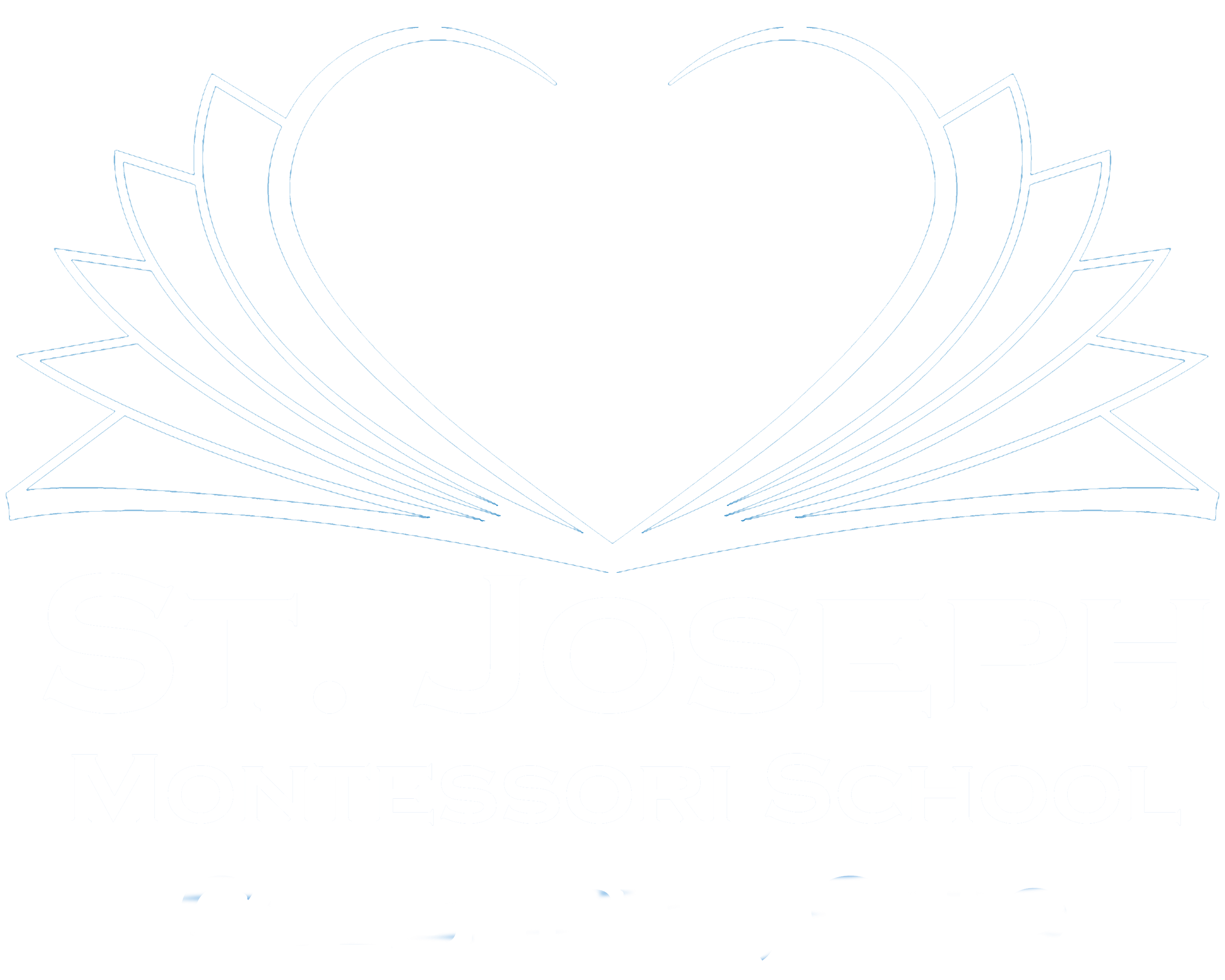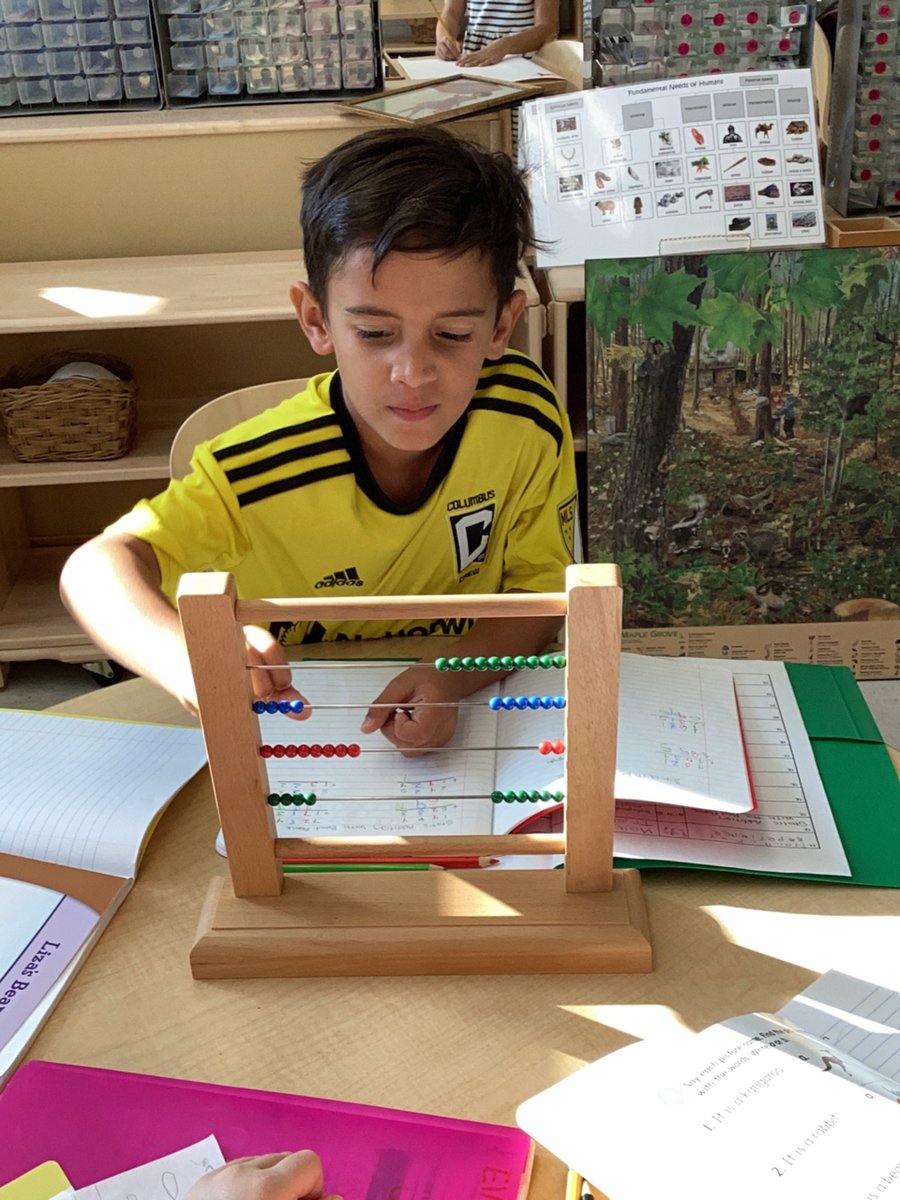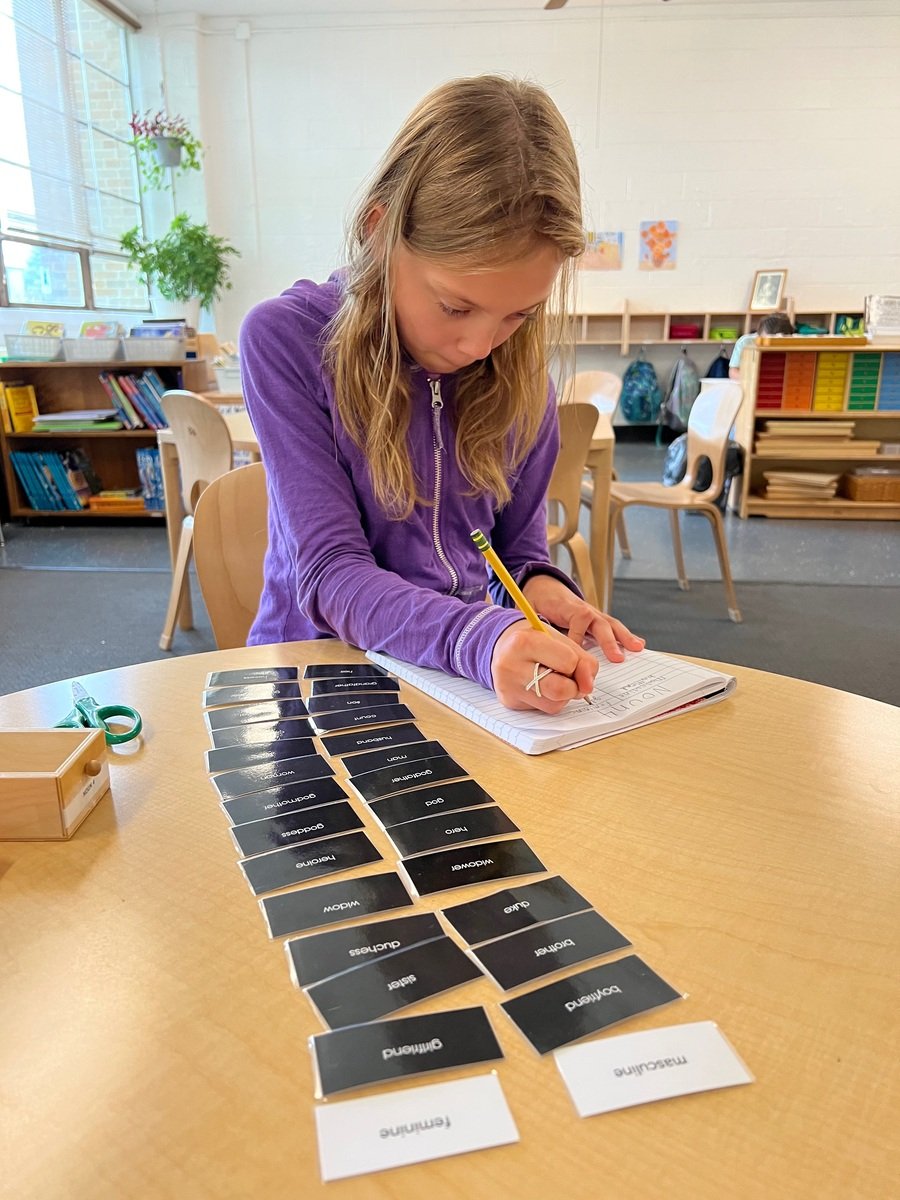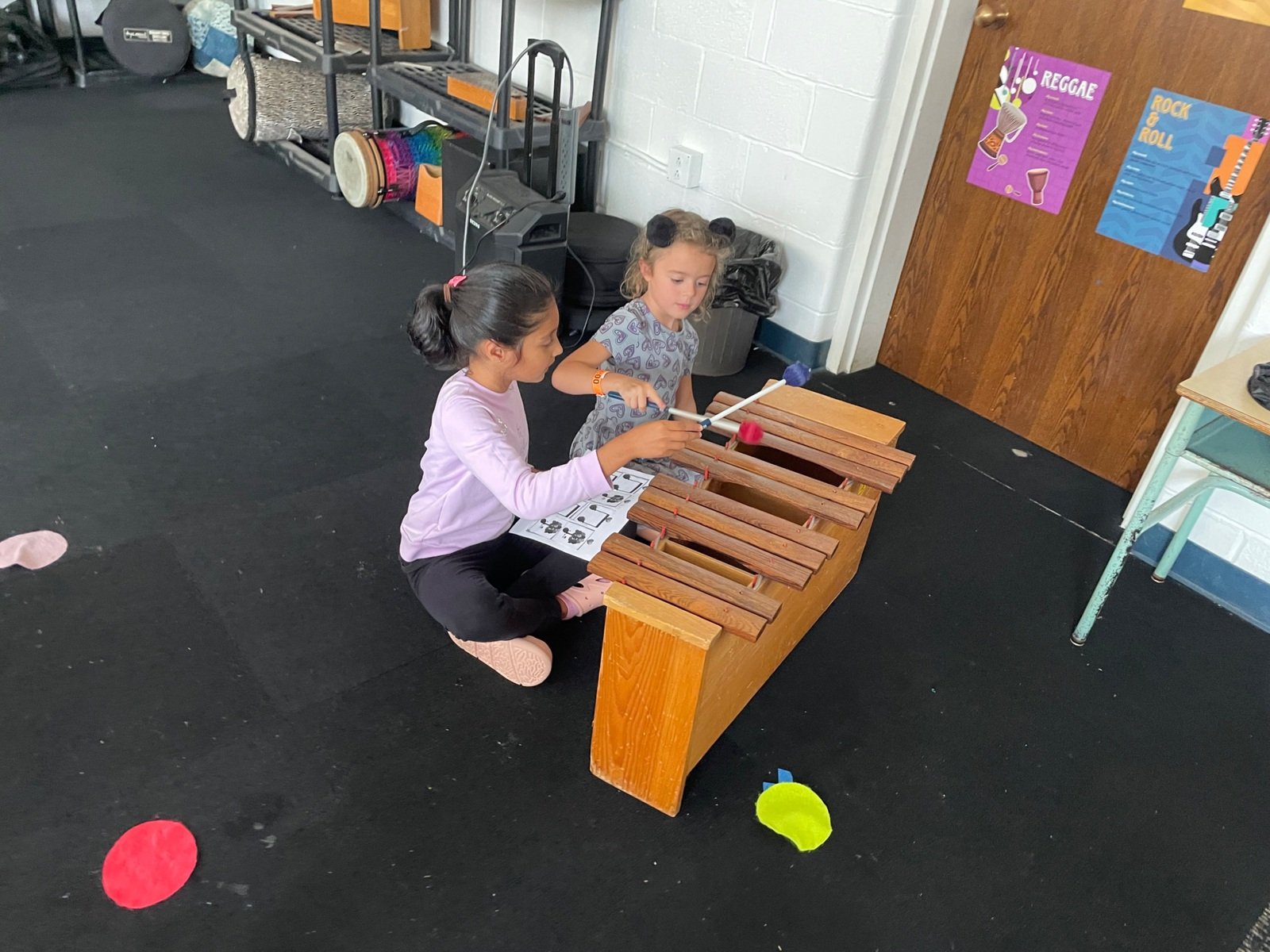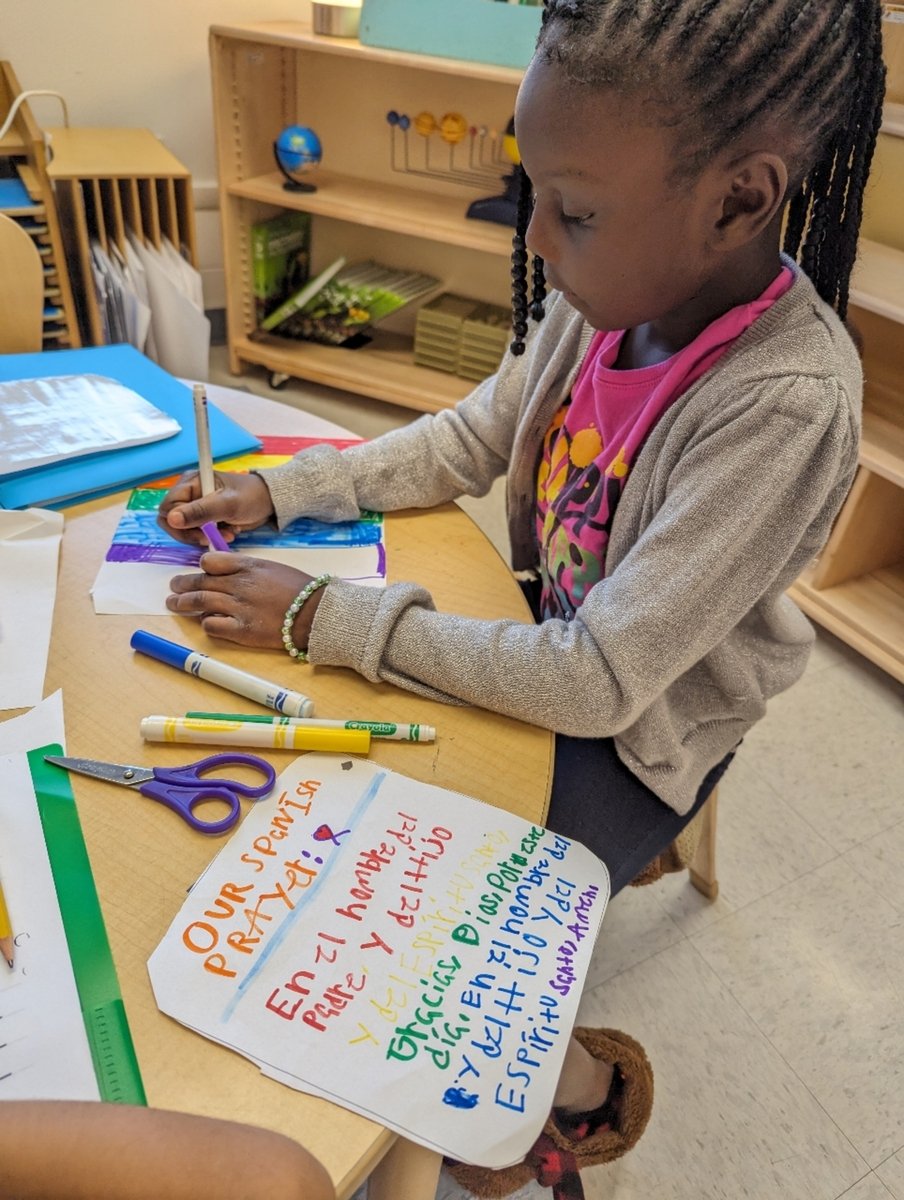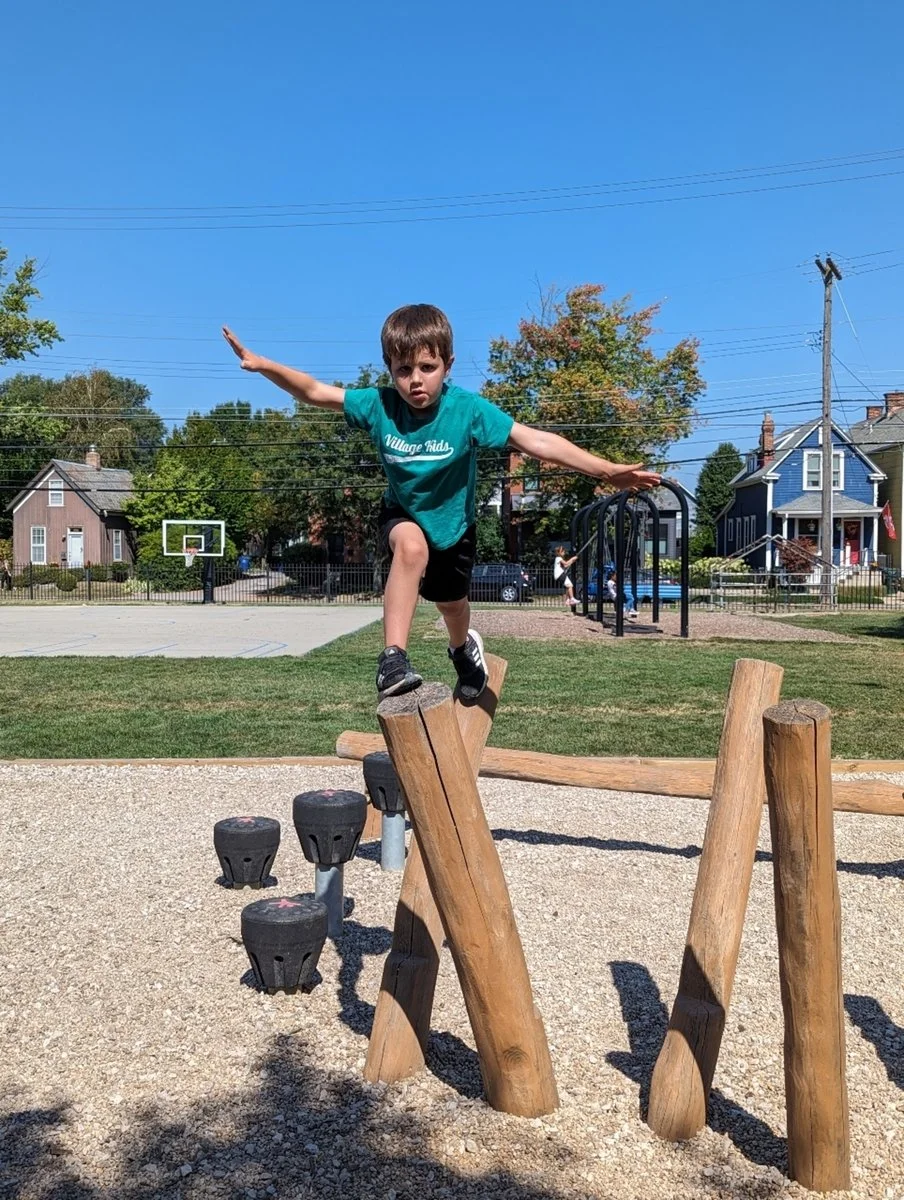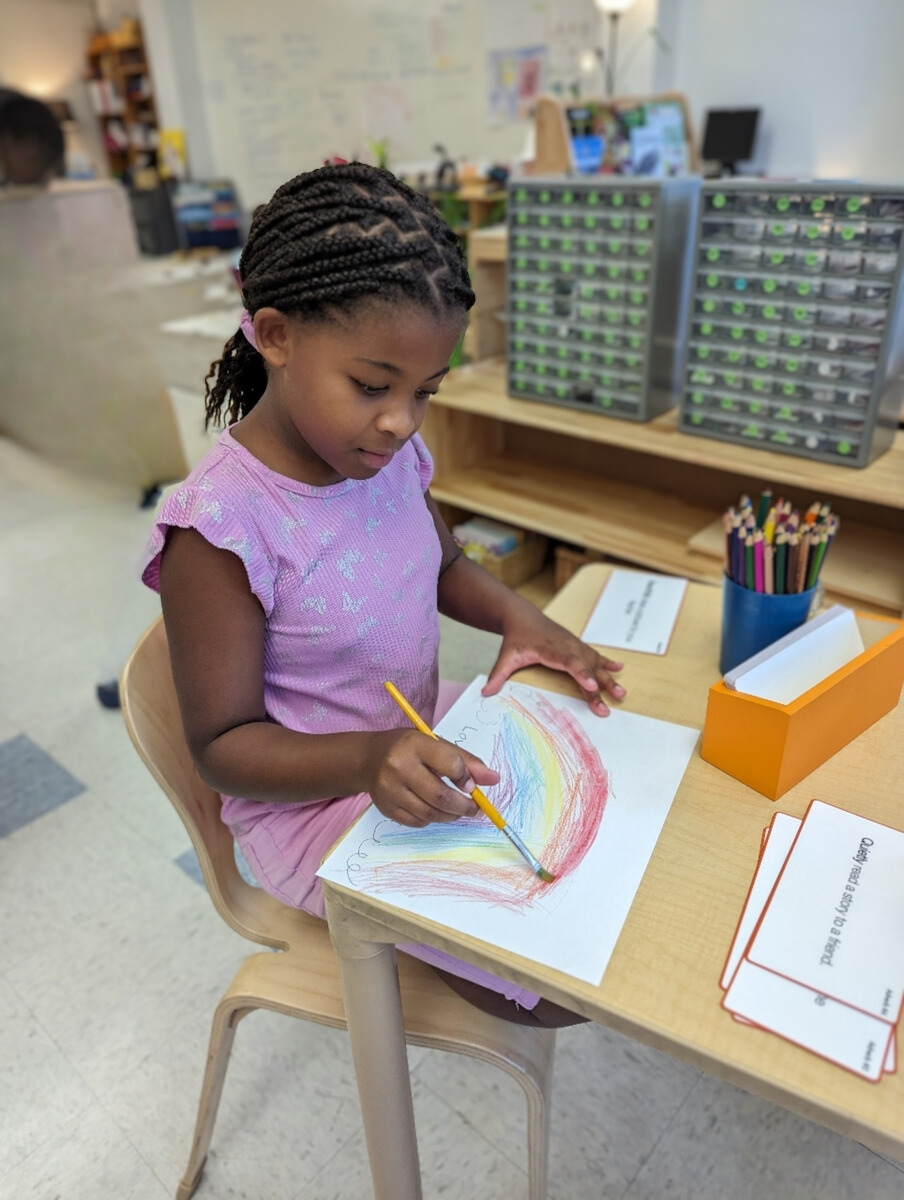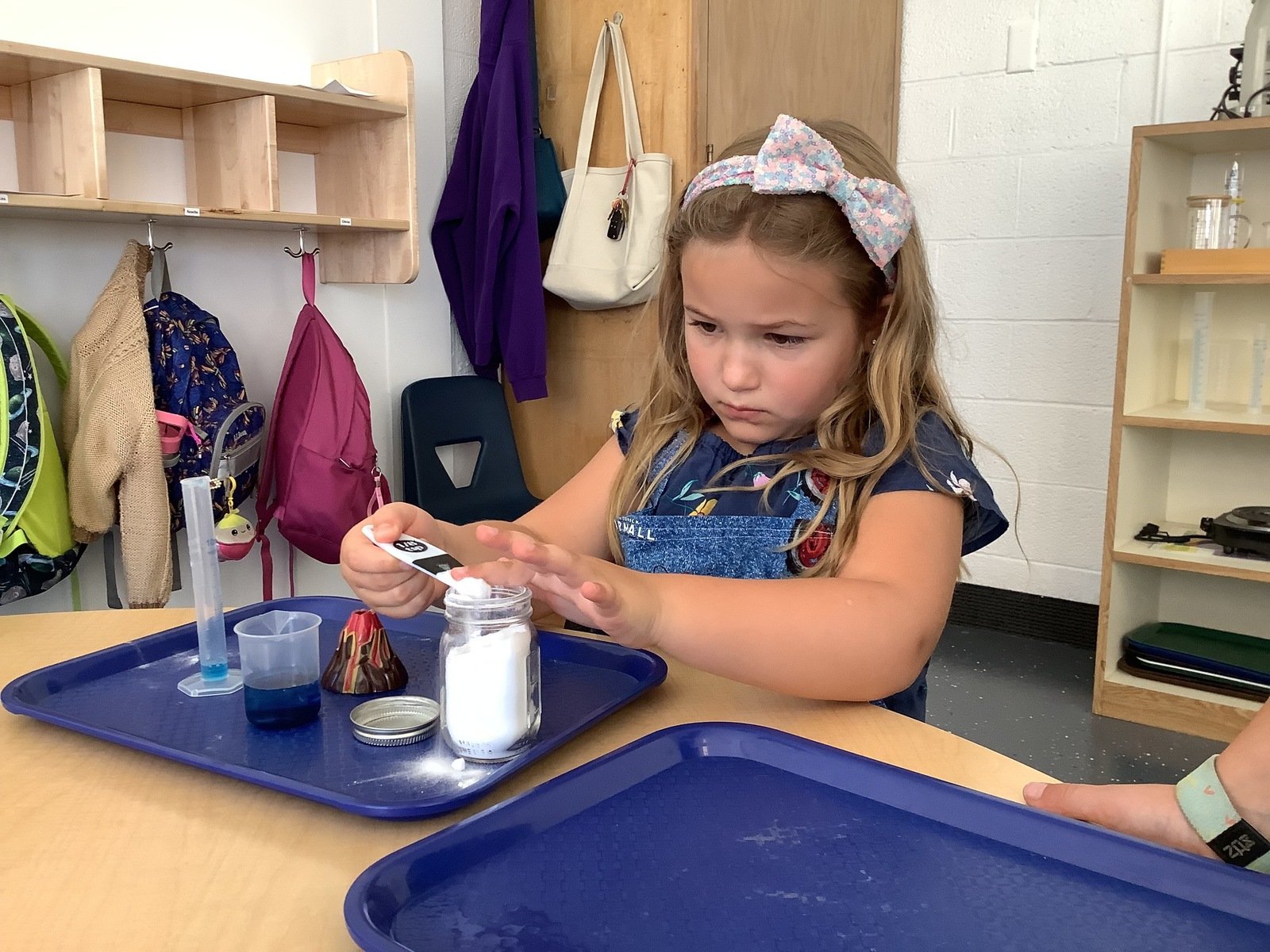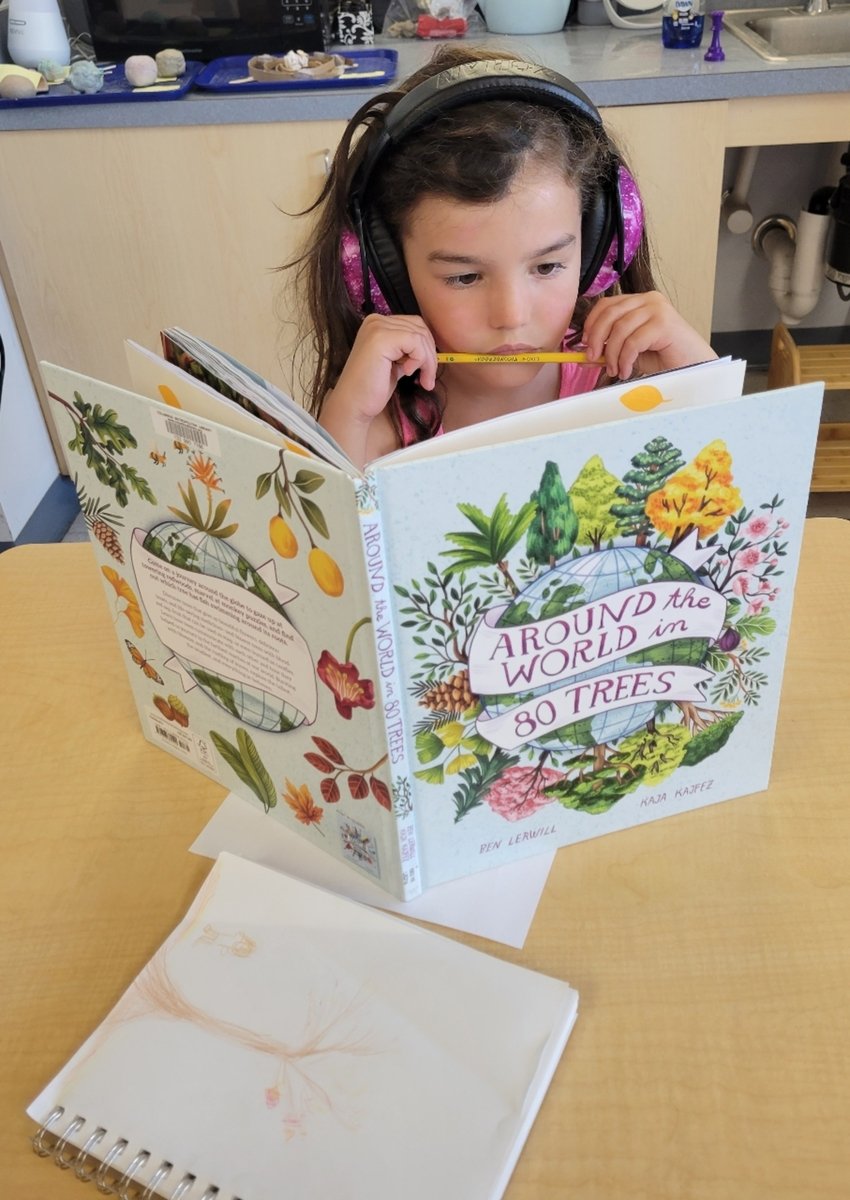Lower Elementary
In our three-year, Lower Elementary program, 6 to 9-year-old children learn in multi-age settings. Our environment is filled with materials designed to spark the child’s interest in learning and their days present many opportunities for ‘big’ work that involves collaborations and research. Language arts, reading, mathematics and geometry, physical education, science, foreign language and cultural subjects are developed through the Montessori curriculum. Music, art, technology and library skills are presented through weekly lessons.
Our Lower Elementary Program gives children the opportunity to continue to progress at their own pace in an environment that nurtures the love of learning. Children take responsibility for their own learning and have daily opportunities to make decisions and make choices in a child-centered classroom. They are exposed to many complex concepts at an early age through the use of wonderful concrete learning materials.
At this level the primary sensitive period for children ages 6 through 9 is the acquisition of what is known as cultural literacy. Imagination is key when learning at this level. Children show an increase in awareness of the world and an interest in its wonders. Older children want to know the reason why things are as they are found in the world. They are oriented toward intellectual investigation and discovery. They are encouraged to think for themselves, do their own research, analyze what they have found, and come to their own conclusions. Montessori teaches children to think, not simply memorize, feedback and forget. They literally learn how to learn, discovering that the process can, and should be, as natural as breathing. Students become fully engaged in the learning process.
Freedom of movement, open work space and uninterrupted blocks of time for individual and group projects all help to support the 6-9 year olds’ need to gain control over their growing bodies, as well as the child’s drive toward independence.
Rather than present children with the “right” answers, our Montessori trained teachers ask the “right” questions and challenge our students to discover the answers on their own. Why? Because although learning the right answers may get the children through school, learning how to learn will get them through life.
Language
Our language program encompasses creative writing, English language competency in written and oral expression, basic reading skills, including comprehension, vocabulary development and literary enrichment. These are presented through a variety of exciting materials such as the farmhouse, grammar boxes, and grammar symbols.
Mathematics
Math exercises begin with the review of the decimal system, from the formation of quantities and symbols to the concept of operations. Then, exercises of the four basic operations are carried out using the bank game, stamp games, bead frames, checkerboards, division test tubes and decanomial beads. Skill mastery from simple addition to long division is the end result.
Geometry
The children study plane figures, mastery of the parts and construction of lines, angles, triangles, and quadrilaterals. They enjoy using the geometric cabinet, geometric sticks, and the nomenclature cards.
Botany
Students study the parts and functions of plants, leaves, flowers, seeds, and roots. These activities enrich the children´s vocabulary, while encouraging the children to begin taking care of plants in the classroom and at home.
Zoology
Studying the external parts of vertebrates, such as fish, amphibians, reptiles, birds, and mammals are the introductory activities in the field of Zoology. Then, students begin to classify the animals and study the interesting facts about them through research and reports. This area enhances the children´s interest in reading and widens their vocabulary. Individual and group activities are conducted through science experiments.
History
The concept of “history” is introduced at this age, focusing on the fundamental needs of man and the stages of progress in civilization such as food, shelter, clothing, and transportation spanning from primitive to modern times. Further study will cover the history of the earth´s formation, utilizing the clock of eras. A deeper understanding will come when students learn about the evolution of life, starting with unicellular organisms through the appearance of man.
Geography
Activities begin with general topics and progress to more specifics concepts such as land and water forms, continents, countries and states. The children will be learning where to place flags, identify countries and their capitals using pin maps, and will complete the course with a detailed study of the United States of America. Geography taught at this age allows children to embrace the study of the universe, the birth of the solar system, the drama of the ocean, and the beginning of life.
